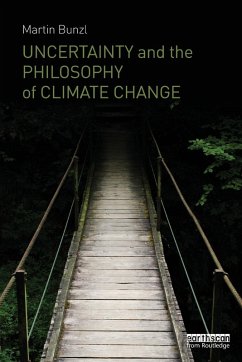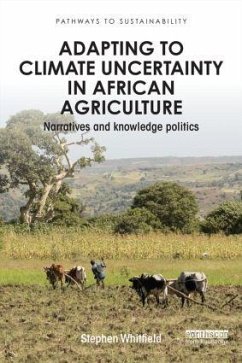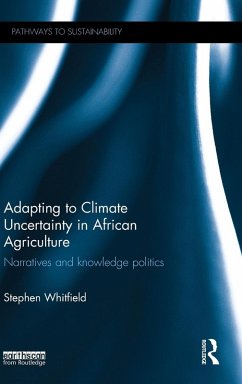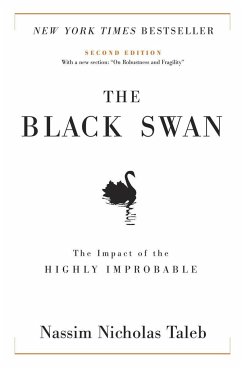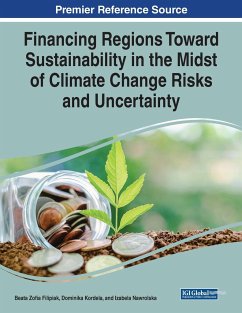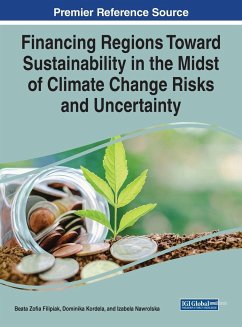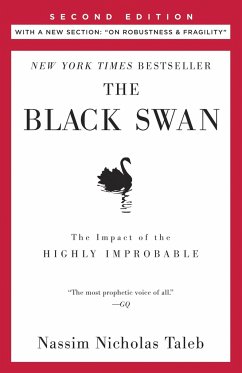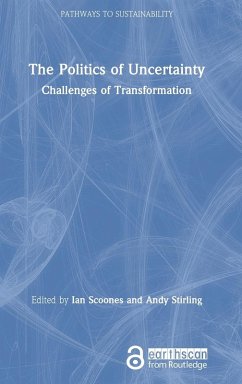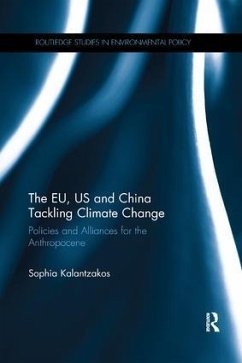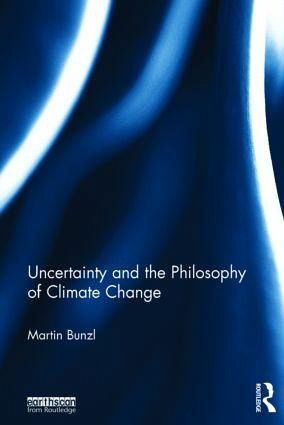
Uncertainty and the Philosophy of Climate Change
Versandkostenfrei!
Versandfertig in 1-2 Wochen
167,99 €
inkl. MwSt.
Weitere Ausgaben:

PAYBACK Punkte
84 °P sammeln!
When it comes to climate change, the greatest difficulty we face is that we do not know the likely degree of change or its cost, which means that environmental policy decisions have to be made under uncertainty. This book offers an accessible philosophical treatment of the broad range of ethical and policy challenges posed by climate change uncertainty. Drawing on both the philosophy of science and ethics, Martin Bunzl shows how tackling climate change revolves around weighing up our interests now against those of future generations, which requires that we examine our assumptions about the value of present costs versus future benefits. In an engaging, conversational style, Bunzl looks at questions such as our responsibility towards non-human life, the interests of the developing and developed worlds, and how the circumstances of poverty shape the perception of risk, ultimate developing and defending a view of humanity and its place in the world that makes sense of our duty to Nature without treating it as a rights bearer. This book will be of interest to students and scholars of environmental studies, philosophy, politics and sociology as well as policy makers.
In demonstrating the moral imperative to act on climate change, the book's ethical analysis is not an end in itself, but a means to clarifying policy. Drawing on the philosophy of science, the book examines our obligations to future generations and how we ought to make decisions when there is catastrophic risk but its probability is unknown.





